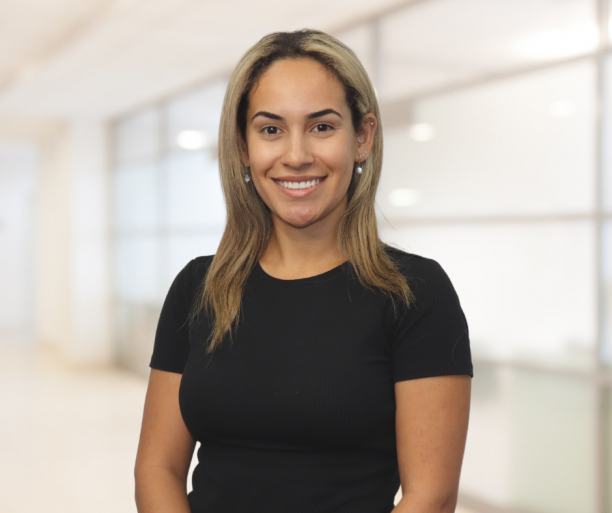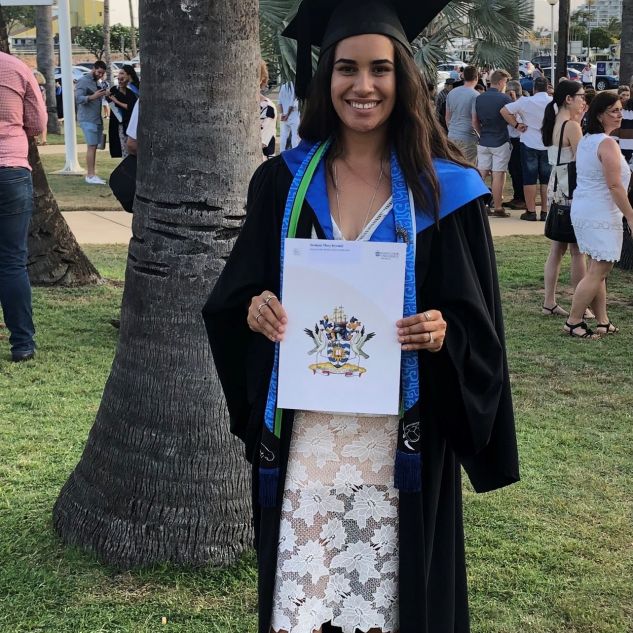Indigenous perspectives improve Indigenous health outcomes
Two recent JCU Speech Pathology graduates, Jasmine Kennell and Morgan Appleby, are using their skills as well as their Aboriginal and Torres Strait Islander backgrounds to make a difference to the health services they are now working in.
Mackay local, Jasmine Kennell, is a Torres Strait and South Sea Islander who graduated from JCU in 2019 and now works as a speech pathologist at an allied health services clinic in Townsville.
I was the first in my family to graduate from university with a degree in the health and medical field. I started to think about studying allied health when I was in my last year of school. And to be honest, I would think, ‘what is that exactly?’ And it wasn't until I actually began exploring it a little bit further that I found out about speech pathology.
In addition to helping children and adults develop their communication abilities, speech pathologists also help with issues around swallowing and mealtimes. A lot of people don’t realise just how many muscles are involved in speech, in swallowing and also in eating, and how complex those muscle movement patterns are. It’s something that we often take for granted in our everyday life.
In my current role, I work with individuals from all ages in the community who may have a range of developmental, intellectual, physical and neurological disabilities. I also love the variety of settings I can work in, such as school, home, clinic, and community settings, which makes my role quite versatile on a daily basis.


Building trust and rapport
According to Jasmine, building trust and rapport is central to the work she does, particularly with clients from Aboriginal and Torres Strait Islander backgrounds.
Coming from a Torres Strait Islander background, I do feel like I am able to bring some of my own personal experiences when I am working with Indigenous clients. I grew up very close to my grandparents and was fortunate enough to learn about some of those cultural ways that can make a real difference to Indigenous people. For example, having limited eye contact, some gaps of silence, and knowing the roles and having respect for the people you are treating.
I know for some clients that I have worked with, it might take a little longer to build rapport which means that therapy sessions may not always run the same, clinically. It may mean more time is spent helping them to engage with you.
It was while on a student placement in the remote community of Normanton in North Queensland that Jasmine saw first-hand how important time spent building relationships is.
When I was on placement in Normanton, we would go to schools to conduct speech, language, or literacy assessments, and sometimes I would be out kicking the footy with the kids to build that rapport and relationship before going indoors to complete a therapy assessment or session.
Building rapport is just so essential to the work you do as a health professional, and even more so for small communities like Normanton. You are a stranger coming into their community and you need to really respect and remember that. Good rapport with individuals helps build strong foundations for holistic practice.


JCU Speech Pathology graduate Morgan Appleby is a proud Gudjal woman from the Charters Towers region, and also the first in her family to graduate from university. Graduating in 2020, Morgan now works as a speech pathologist at Townsville University Hospital.
From my first year through to my final year as a student, I felt immensely supported by the Indigenous Education Research Centre (IERC) and the support services that they provide.
The centre’s student advisors really helped me during the COVID-19 lockdowns, especially as I had to home school my niece and a nephew who were in grade 10 and grade 6, while also finishing my last year of university. As you can imagine, it was pretty tough mentally and emotionally. So, it was wonderful to be having these regular debriefs and check-ins, especially at a time when I was feeling pretty overwhelmed.


Setting a career direction
Morgan says her JCU student placement experiences were invaluable in exposing her to different fields of the speech pathology profession and helped to define her future career as a hospital-based speech pathologist.
My student placement experiences at JCU really showed me what direction I wanted to take as a speech pathologist and helped set me up for my career at the Townsville Hospital.
I had my first placement up in Weipa, which was a paediatric placement with the hospital and health service where I assisted with the child health screening process for speech and language development. As there’s only one speech pathologist for that region, which includes nearby Aboriginal communities as well, I got to experience and learn a lot while I was there. For example, ear infections that can affect both hearing and developmental speech production are unfortunately quite common for Aboriginal children in these communities.
My second placement was working with adults in a rehabilitation setting, in the subacute unit at Townsville University Hospital, which is the last unit patients go to before going home. A lot of the patients there have had strokes or a brain injury or are suffering from neurodegenerative diseases that can affect their speech. We provide therapies to try to rehab them back to their previous function and also plan how they're going to go home and what supports or ongoing speech therapy they might need.
I also had my final placement at Townsville Hospital and just fell in love with the variety of work that speech pathologists do there. Being a regional hospital means that you get exposed to a diversity of medical conditions and patients from all age spans.
I've also noticed as an Aboriginal health professional, that as soon as I walk in the room of an Indigenous patient, they are more likely to feel comfortable enough to start a conversation with me. This really helps with what I do, because essentially what I'm looking at is their speech and use of language.
I have also found that the other speech pathologists at the hospital appreciate having me there as an Aboriginal allied health professional. It’s a very welcoming and rewarding environment in which to work.